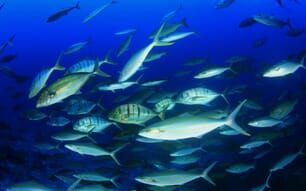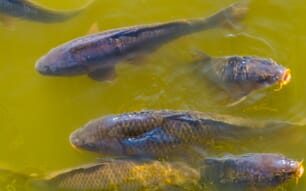The selection leads to low maximum body size and poor reproductive output.
In her ground-breaking experiment published in Evolutionary Applications, Postdoctoral Researcher Silva Uusi-Heikkilä from the University of Turku mimicked the size-selectivity typical to many fisheries by systematically removing large fish from the experimental fish populations.
After just five generations of harvesting, adult body size shrunk by 7 per cent, which also affected the egg production of the surviving fish.
The now-smaller individuals produced fewer and smaller eggs and offspring compared to the large fish that were harvested using a mortality schedule mimicking a maximum-length, rather than a minimum-length, limit regulation.
In most fisheries, minimum-length limits are the standard tool, but these standard tools appear to be the most damaging from a Darwinian perspective.
Most significantly, intensive size-selective harvesting also induced genetic changes in the experimentally exploited fish populations.
"This fisheries-induced evolution in functional loci will not be easily reversible and can thus be harmful for commercial and recreational fisheries," said Ms Uusi-Heikkilä.
"Our study shows that fishing creates a legacy ranging from genes to population productivity, but from the fish’s perspective human-induced evolution is not necessarily negative, as it can help the population cope with high fishing mortality," noted project leader Professor Robert Arlinghaus from the Humboldt University of Berlin.
Small and Shy Fish Are Harder to Capture
Size-selective harvesting also induced changes in fish behaviour. The researchers found that the now-smaller fish were more cautious and less explorative.
"Overfished populations in the wild could mostly consist of shy individuals that are harder to catch. Because catch rates are bound to decline when fish become shyer, our results suggest that catchability might be changing as well. Most fish stocks are assessed by catch-dependent data.
"Thus, fisheries-induced evolution might slowly but steadily make it harder to assess the actual number of fish with catch-dependent data," concluded Ms Uusi-Heikkilä.
"It is advisable to not only capture the largest fish but to harvest fish stocks in a more balanced and less intensive way to avoid a long-lasting evolutionary legacy," Professor Arlinghaus added.
July 2015



